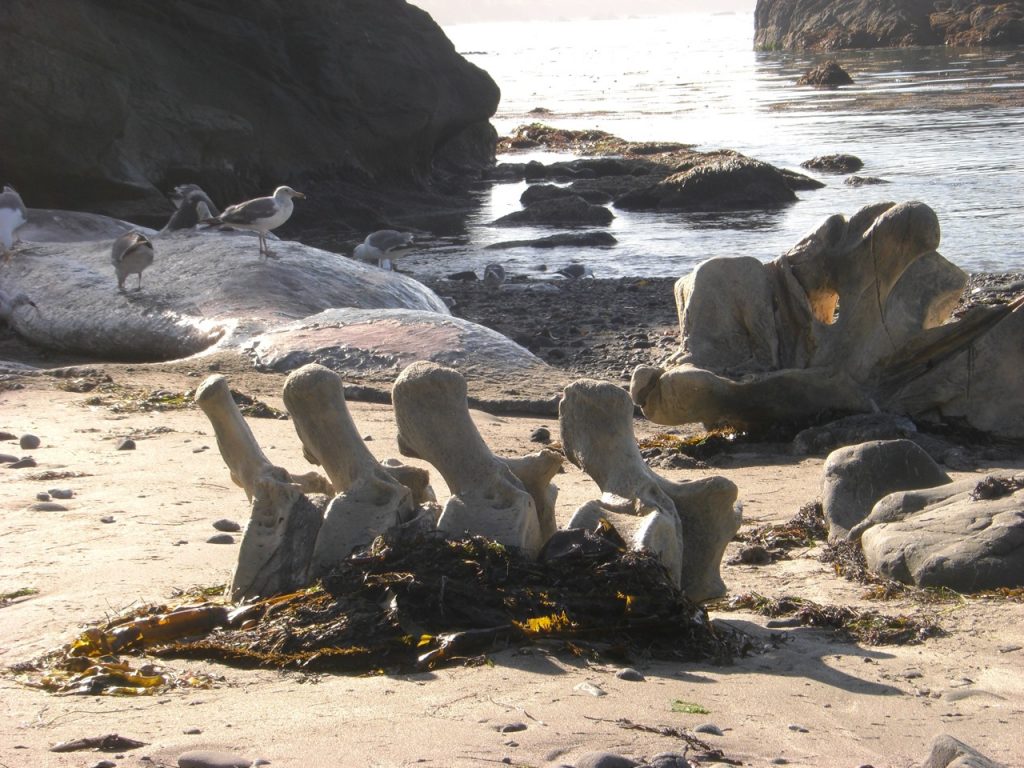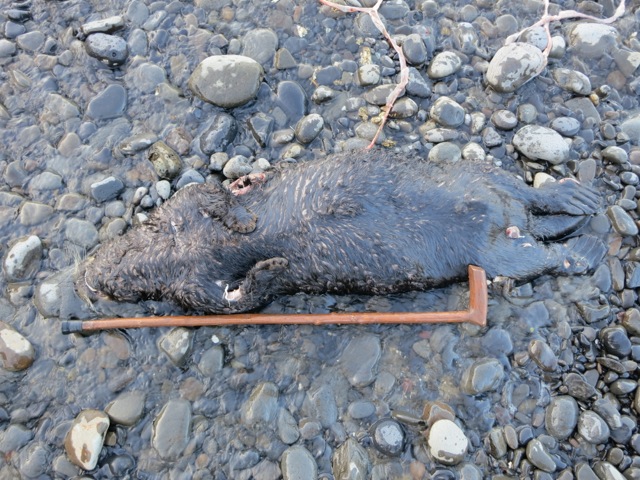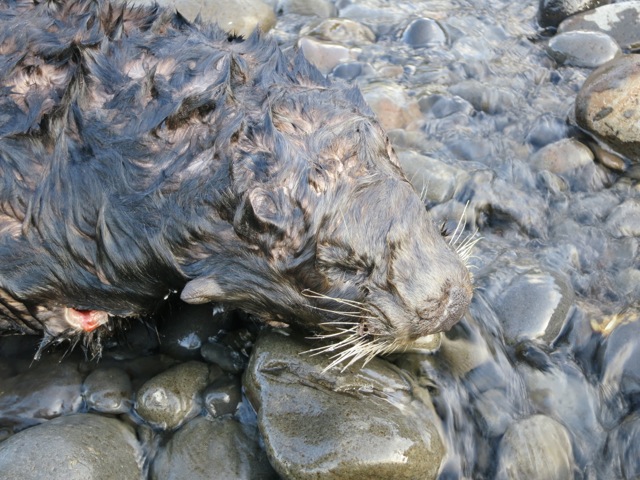An early morning photo from Jan Henault (Chetco Beach, Oregon South) reminded us to remind you that YES, marine mammals should be recorded in the comments section of the COASST data sheet.

Sperm whale at Chetco Point (background) with vertebrae in foreground. Credit: Jan Henault.
More than that, Kirstin Wilkinson, Northwest Marine Mammal Stranding Coordinator (Washington to Northern California – Alaska is separate) reminds us of the following:
When you find a stranded live or dead marine mammal on the beach, contact the local stranding network coordinator in the area via this map. For calls within Olympic National Park, report to Kristin, 206-526-4747. Sea Otter stranding should be reported to the Sea Otter Stranding hotline, 877-326-8837.
What information is needed?
Please leave your name, phone number, date and time, species, status (dead, alive, injured, etc.) and the exact location, and identify yourself as a COASST volunteer. Please mention if you have taken photos of the animal; photos are very helpful with identification and to assess condition of the carcass/animal.
What will happen?
The local coordinator will determine if a response to the stranding is necessary. If the carcass is in poor condition, there is a chance there will not be a response due to limited information value, resources and personnel. Also, there is a chance the animal has already been reported or responded to. In most circumstances carcasses will be left on the beach and will only be removed if a full necropsy will be performed.
Intervention on live seal and sea lion strandings occurs on a case by case basis. Rehabilitation facility capacity is low and can only accommodate harbor seal pups that have had some type of negative human interaction.
Will I get a call back?
If you would like a call back from the local stranding coordinator, please say so in your voicemail.
What happens to the reports?
A Level A (stranding network) data form will be filled out by the local stranding coordinator for all dead or live stranded marine mammals under NOAA jurisdiction. The Level A will be entered and information included in the national database.





